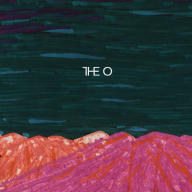Barros, son of composer Theophilo de Barros Filho, began to study music at ten. Moving to São Paulo at 11, he took the violão (acoustic guitar) and started to play balls and amateur shows at 13. His first composition was written two years later, Saudade Pequenina. His professional debut was at the Lancaster nightclub, playing bass with César Camargo Mariano (piano), Flavinho (trumpet), and Escalante (drums). In 1962, he formed a trio with Renato Mendes (organ) and José Luis Shiavo (drums). In the next year, he joined the Sabá Quarteto, together with Mariano, Sabá, and Hamilton Pitorre. In the same year, his Sexteto Brasileiro de Bossa opened at the João Sebastião Bar. In 1964, he won the Índio de Prata trophy (granted by TV Tupi) for Maria e Mar. Also in that year Walter Wanderley recorded his Menino das Laranjas on his LP O Toque Inconfundível de Walter Wanderley. The song was also recorded by Elis Regina in the next year, when he wrote Disparada (with Geraldo Vandré) and Espanto. Among the important plays he directed and composed songs for, the most remarkable was +Arena Conta Tiradentes (Augusto Boal/Gianfrancesco Guarnieri). With Heraldo do Monte and Airto Moreira, he formed the Trio Novo that became the influential Quarteto Novo with the admission of Hermeto Pascoal. His Desafio won first place (tied with two others) at TV Tupi's Festival da Viola. Barros continues to perform and record his solo albums and also is active in the advertising market as a composer, arranger, and producer of jingles. ~ Alvaro Neder, Rovi
Theo de Barros
Biography
Composer, arranger, musician, and producer Theo de Barros gave a noted contribution to the Brazilian popular music scene of the '60s with the success of his songs in historic festivals. He was also a member of the seminal Quarteto Novo. At 19, he had two of his songs, Natureza and Igrejinha, recorded by Alaíde Costa. His first singles as a singer were recorded in the next year, with Vim de Santana and Fim. His first hit was Menino das Laranjas, recorded by Geraldo Vandré and Walter Wanderley in 1964 and by Elis Regina in 1965. In 1966, he achieved national success when his Disparada (with Geraldo Vandré) was presented by Jair Rodrigues, Trio Maraiá, and Trio Novo at the II FMPB, the TV Record's Festival of Brazilian Popular Music (tying in first place with Chico Buarque's A Banda). As an arranger, he worked for Carlos Lyra and Abílio Manuel. He also wrote arrangements for the CDs The Best of Antonio Carlos Jobim (1990), The Beatles in Bossa Nova, The Best of Chico/Toquinho/Vinícius (1991), Pery Ribeiro -- Songs of Brazil (1992), Jane Duboc (1993), and Toquinho-Peça Infantil (1996). He produced albums for Dick Farney, Márcia, Adauto Santos, and Papete. Together with Trio Maraiá, he wrote the soundtrack to the film #Quelé do Pajeú (Anselmo Duarte). Barros also produced and arranged the two earliest albums by Edu da Gaita, which were appointed by the Jornal do Brasil paper as Best Album of the Year (1981 and 1982).
Albums
Videos
Close













